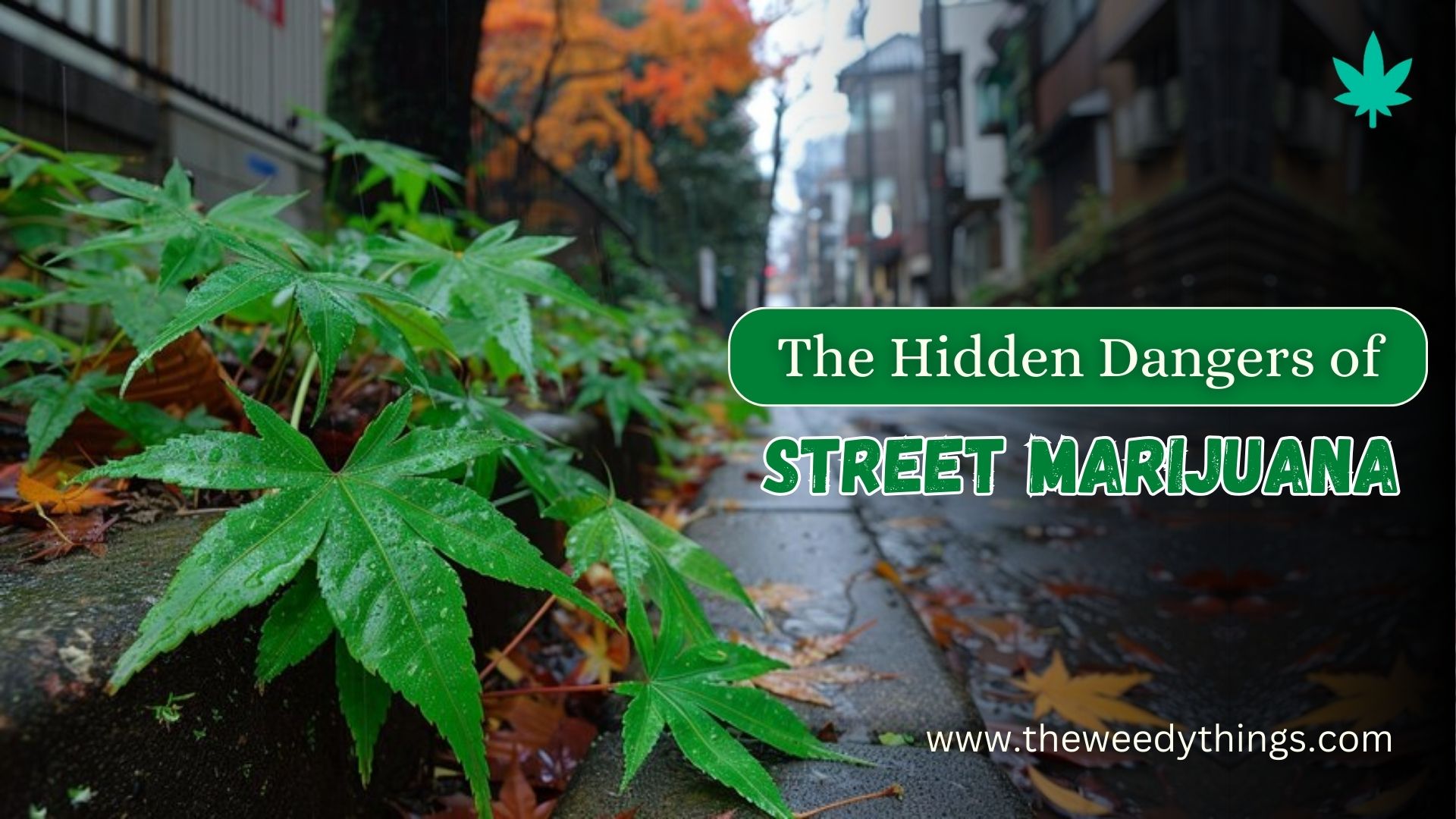Lack of Quality Control
Quality Control- This is one of the greatest dangers with street marijuana. Street cannabis is not controlled and unlike in legal dispensaries products can contain pesticides, heavy metals, fungi or other contaminants. And this, in turn, means that users are unable to find out what they get. Illegal pesticides, mold and dangerous chemicals may have contaminated street cannabis, which are not only more likely with street marijuana but also will post serious health threat.
Also, the strength of street marijuana can range considerably. And importantly, some strains are actually much stronger than you might have thought, which can lead to negative consequences in recreational users who newer to consuming pot. Intake of high-potency products can lead to anxiety attacks, paranoia or hallucinations.
Presence of Harmful Additives
Some dealers may add adulterants or harmful substances to make street marijuana more appealing. These can be substances such as synthetic cannabinoids, also known as “spice” or “K2.” They often come with a range of serious psychoactive and related physical effects that are usually unpredictable and risky.
Some users may also encounter marijuana that is laced with other drugs, like fentanyl or methamphetamine. These chemicals are more likely to cause an overdose and can make it difficult for doctors to treat the person in case of a medical emergency. Failure to ascertain these harmful materials only heightens the peril of street marijuana intake.
Mental Health Risks
High rates of mental health issues are often associated with street marijuana. The main psychoactive molecule of cannabis, THC, could cause or set off an already existing anxiety and/or depression disorder. These effects may be more pronounced, particularly on the users of street marijuana where quality control is not ensured and unwanted elements like harmful additives could also be found.
Street marijuana, In particular can put those who have a mental health issues in a much difficult situation such as panic attacks and severe paranoia like loss of sense of reality. Cannabis can affect a person’s mental health condition in ways that the user needs to understand and be equally cautious.
Judgment and Safety issues
Street marijuana contains THC, that can impair judgement and cognitive function as well cause dangerous behavior. Whether it is driving under the influence or participating in risky behavior, THC can cause actions that an average person would not do.
Legal Consequences
Despite it being legal in so many places, marijuana from the street is still an illegal drug if your town or country has not suddenly legalized it. If you purchase or have street marijuana, it could subject you to criminal fines, arrests and charges. Young peoples’ futures are directly impacted as well, for those with career aspirations to certain fields.
In addition, cannabis laws are constantly evolving. What is legal this year may be illegal next, and if you plan to experiment with marijuana in a locality that your home, keep up on the latest marijuana use regulation.
Dependency and Withdrawal Issues
Regular use of street marijuana can lead to dependency, especially in individuals who use it as a coping mechanism for stress, anxiety, or other issues. While not everyone who uses marijuana becomes dependent, those who do may experience withdrawal symptoms when they try to stop using it. These symptoms can include irritability, insomnia, loss of appetite, and mood swings.
Dependency on marijuana can create a cycle where users feel they need the substance to function, further complicating their mental health and overall well-being.
Risk of Unregulated THC Concentrations
Unlike regulated dispensaries, where THC levels are clearly labeled, street marijuana offers no such transparency. This lack of information makes it challenging for users to gauge how much they should consume, increasing the risk of adverse reactions.
Adverse Physical Health Effects
While many people associate marijuana with relaxation and pain relief, it’s important to recognize that it can also have adverse physical health effects. Street marijuana may contain contaminants that can harm the lungs, especially when smoked. Inhalation of harmful substances can lead to respiratory issues, chronic bronchitis, or lung infections.
Furthermore, cannabis use can lead to increased heart rate and blood pressure, posing risks for individuals with existing cardiovascular conditions. Understanding the physical health risks associated with marijuana consumption is crucial for making informed decisions.
Potential for Increased Tolerance
Regular use of street marijuana can lead to increased tolerance, meaning users must consume more to achieve the same effects. This can create a cycle of increased consumption that may lead to heightened dependency and associated risks. As tolerance builds, users may also seek out stronger products, potentially exposing themselves to even greater dangers.
Conclusion: Making Informed Choices
While marijuana can have therapeutic benefits for many, it’s essential to approach its use with caution, particularly when considering street marijuana. The hidden dangers—ranging from harmful additives to legal consequences—highlight the importance of sourcing cannabis from reputable and regulated dispensaries.
By staying informed and aware of the risks, you can navigate the complex landscape of marijuana use while minimizing potential dangers.
Frequently Asked Questions
Street marijuana may contain harmful additives like synthetic cannabinoids, mold, or pesticides, which can cause serious health issues.
Yes, street marijuana can sometimes be laced with drugs like fentanyl, increasing the risk of overdose or other severe reactions.
Regulated cannabis is tested for purity and safety, while street marijuana lacks such oversight, making it potentially dangerous.
Street marijuana can exacerbate anxiety, paranoia, and even psychosis, especially when laced with unknown chemicals.
Though rare, it is possible to experience severe side effects or overdose if the marijuana is laced with potent substances like opioids.




